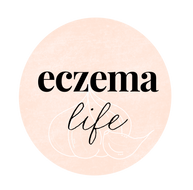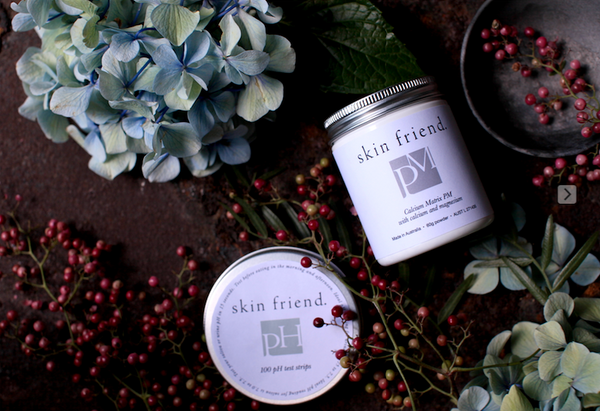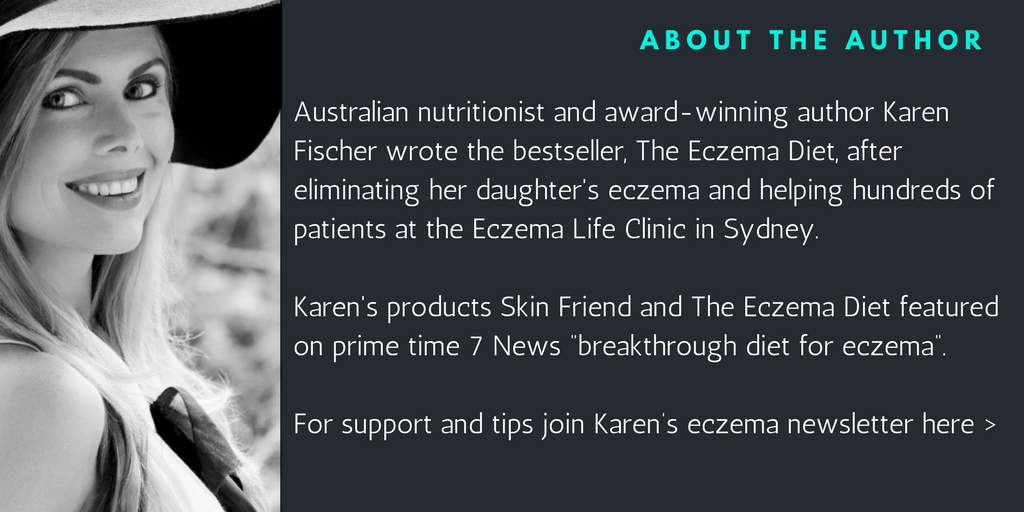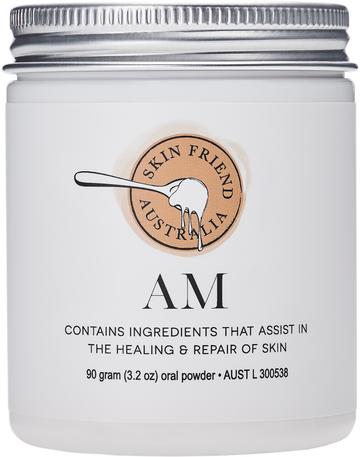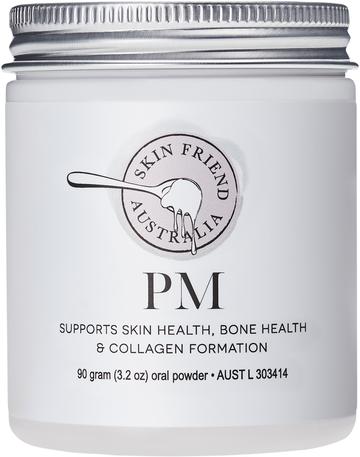Eczema and Poor Sleep - Top 3 Habits to Avoid

Your skin does its repair work while you snooze and people with eczema - no matter what your age - can benefit from a sound nights’ sleep. However, falling asleep can be difficult when you have incredibly itchy skin. According to breakthrough research from Japan, the problem can be compounded by a few bad habits and the solution could be, well, simple and rather fun. Here are the top 3 habits to avoid if you have eczema and poor sleep:
Bad Habit #1: Picking drama over comedy
According to Japanese researchers, patients with atopic eczema frequently suffer from sleep disturbance generated by itching and/or mental stress. Well let’s face it, itchy skin can be a tad stressful. It is a known fact that melatonin, the hormone which promotes sleep, is reduced by stress and Japanese researchers found melatonin is commonly low in eczema patients when compared to people who are eczema-free.1
SOLUTION: Laugh more
Dr. Kimata from Department of Allergy in Moriguchi-Keijinkai Hospital in Japan, has found a quirky solution to low melatonin in eczema patients... His team found that viewing a funny film before bed improved sleep in children with atopic eczema.1 How? They found that laughing “counteracted stress-induced hormonal changes”. The movie used was a Charlie Chaplin film but I suggest finding what is funny to you.
Laughter also increases levels of melatonin in breastmilk. Dr. Kimata found that watching a funny film boosted the level of melatonin in breastmilk, and feeding infants with increased levels of melatonin-containing breastmilk reduced allergic responses in infants with eczema.2
So skip the dramas and thrillers. If anyone in the family has eczema, picking a comedy on Netflix may just be what the doctor ordered.
Bad Habit #2. Going to bed on an empty stomach
Going to bed hungry or on an empty stomach is another common mistake that can cause insomnia in eczema sufferers.
According to the research, ghrelin levels in saliva are significantly elevated in patients with atopic eczema (compared with eczema-free children). This can make eczema sufferers feel hungry at bedtime or during the night, which promotes broken sleep and can make it difficult falling asleep at night.3 Research shows that viewing a humorous film before bedtime lowers eczema patient’s salivary ghrelin levels and as a result children with eczema can experience a more restful night’s sleep.3 (Children were used in this particular study but I presume it works for adults too.)
SOLUTION: A night time snack
Foods rich in tryptophan can also promote a better nights’ sleep. Tryptophan is an essential amino acid which means it must be obtained from the foods you eat as your body can’t produce it. Tryptophan crosses your blood-brain barrier to access your brain and it’s used to make a hormone called serotonin, which promotes feelings of calm and relaxation.
- Tryptophan-rich foods works best when you have a snack just before bed.
- Tryptophan-rich foods include chicken, turkey, fish, beans, chickpeas, lentils, organic soy milk and wholegrains such as oats, spelt and rice.
Bad Habit #3. Not enough calming calcium in your diet
Your diet affects your genetic health in a variety of ways. In the American Journal of Clinical Nutrition, Professor Loren Cordain and her colleagues say that our dietary changes, which began with the introduction of agriculture and animal farming, may have occurred too recently for our human genetics to adapt.5
We have fewer micronutrients in our diet, processed foods often contain sugar and white flour which are virtually devoid of vitamins and minerals. In fact, a deficiency in a single nutrient can cause genetic defects that can lead to the appearance of eczema.5
SOLUTION: Calming calcium
One of the most important deficiencies to avoid is calcium deficiency. Calcium deficiency is one of the major causes of insomnia and it can lead to a worsening of eczema, poor bone health, cellulite and a variety of aches and pains including growing pains during childhood and bone and joint pain after menopause.
Calcium cannot be absorbed on its own - you need to take it with magnesium. And don't expect dairy products to alleviate your symptoms as dairy allergy is common in people with eczema. Avoiding dairy is one of the best ways to reduce eczema, so you need to take calcium as a replacement if you do decide to ditch dairy.
FAQ: 'What type of calcium is best for eczema?'
While the post popular form of calcium is calcium citrate, this type pf calcium is mostly citric acid - an acid which neutralises the alkalising properties of calcium. Calcium citrate does not have the alkalizing properties that help to calm the itch of eczema. However, I prefer to prescribe calcium bicarbonate as it is highly alkalizing. It is also a known salicylate sensitivity remedy, so it can help to temporarily calm the itch when teamed with magnesium.
Note: vitamin D can cause insomnia (it's the 'wake you up' vitamin) so do not take calcium that contains vitamin D in the afternoon or before bed.
I encourage you to do your own research. Supplements often have hidden additives (not listed on the label) so you will need to call the manufacturer to get their list of excipients, as these ingredients may worsen eczema, and waste your money.
Note the call centre people often have no idea what the excipients are. In Australia, I rang a supplement company after my son had an adverse reaction to a popular children's supplement. I was told the excipient ingredients were "confidential" - the naturopath who took the call could not even tell me if soy was in the product (my son is allergic to soy - he is the boy in the photo, above). However, the naturopath did mention their "sugar-free" children's product did in fact contain sugar.
So frustrating!
This is why after ten years of research (and endless frustration at not being able to prescribe good supplements for my eczema patients) I developed my own line of skin supplements - for people who are sensitive to everything. Like my daughter, Ayva, who had eczema (she is now eczema-free).
Back to how calcium helps eczema and sleep...
As mentioned, I prefer calcium bicarbonate (Calcium Matrix PM) as it performed better than calcium citrate when we tested them both for reducing the itch of eczema.
Photo: PM pure calcium powder and PH test kit to check your acid-alkaline levels.
Recommended Calcium intake from supplements:
Infants (AI)
210–270 mg from breastmilk or hypoallergenic (dairy-free) infant formula
Children + teens
1–4 yrs: 300–500 mg
5–12 years: 600–1000 mg
14–18 years: 600–1000 mg
Adults
600–800 mg
Top tips to sleep better
1. Laugh more
2. Snack before bed
3. Take a calcium supplement that contains magnesium, in the afternoon and again before bed. For children ensure it's an unflavoured powder calcium supplement as the fruit flavourings will make them itchy like crazy.
I hope you feel better soon!
Much love,
Karen Fischer and the team at the Eczema Life Clinic (Sydney)
Products
At Eczema Life, we recommend nutritionist Karen Fischer's low food chemical program (The Eczema Detox) along with additive-free supplements for skin health and wellbeing. Click on the images to view more details:
Photo: new packaging of Skin Friend PM and pH
Photographer Michelle Griffiths (Child photo); Karen Fischer (product photo)
